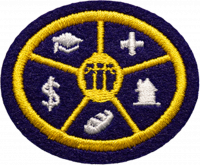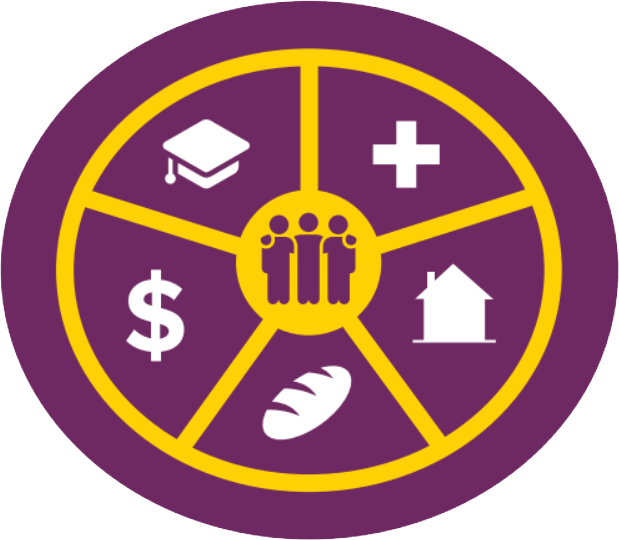Difference between revisions of "AY Honors/Social Determinants of Health"
m |
(Marked this version for translation) |
||
| (2 intermediate revisions by the same user not shown) | |||
| Line 4: | Line 4: | ||
|category=Health and Science | |category=Health and Science | ||
|authority=North American Division | |authority=North American Division | ||
| + | |insignia=Social Determinants of Health AY Honor.png | ||
}} | }} | ||
| − | =={{Localize|Overview}}== | + | == {{Localize|Overview}} == |
<translate> | <translate> | ||
| + | <!--T:1--> | ||
Opportunities to live healthy and fulfilling lives doesn’t come easy for many people, including millions of youths. The hurdles they face, called “social drivers (or determinants) of health”, can hinder an individual’s development and create health disparities that can significantly impact a person’s physical and mental wellbeing, as well as their long-term personal development and prosperity. | Opportunities to live healthy and fulfilling lives doesn’t come easy for many people, including millions of youths. The hurdles they face, called “social drivers (or determinants) of health”, can hinder an individual’s development and create health disparities that can significantly impact a person’s physical and mental wellbeing, as well as their long-term personal development and prosperity. | ||
| + | <!--T:2--> | ||
By understanding these factors, young people can become more aware of the impact that social and economic conditions have on their health and wellbeing. This knowledge can also help them make more informed decisions about their lifestyles and be more engaged members of their communities, so that they can become catalysts for change in their own communities. | By understanding these factors, young people can become more aware of the impact that social and economic conditions have on their health and wellbeing. This knowledge can also help them make more informed decisions about their lifestyles and be more engaged members of their communities, so that they can become catalysts for change in their own communities. | ||
</translate> | </translate> | ||
| − | =={{Localize|The Challenging Part}}== | + | == {{Localize|The Challenging Part}} == |
{{Localize|Challenging Part}} | {{Localize|Challenging Part}} | ||
Latest revision as of 21:19, 13 August 2024
Skill Level
2
Year
2024
Version
21.02.2026
Approval authority
North American Division
Overview
Opportunities to live healthy and fulfilling lives doesn’t come easy for many people, including millions of youths. The hurdles they face, called “social drivers (or determinants) of health”, can hinder an individual’s development and create health disparities that can significantly impact a person’s physical and mental wellbeing, as well as their long-term personal development and prosperity.
By understanding these factors, young people can become more aware of the impact that social and economic conditions have on their health and wellbeing. This knowledge can also help them make more informed decisions about their lifestyles and be more engaged members of their communities, so that they can become catalysts for change in their own communities.
The Challenging Part
The most challenging requirement of this honor is probably this:
9. Do one of the following:
- a. Create an educational presentation about the Social Determinants of Health for a younger group. Give the presentation.
- b. Focus on one area of the SDoH and find an organization you could assist who is working to improve a community's access to resources. Report to your church board, pastor, or other adult group what you did to assist.
- c. Have a community leader who functions in a capacity related to Social Determinants of Health to come and speak to your group. Prepare 8-10 interview questions and provide them to this leader prior to the event. Summarize what they shared.
- d. Invite a community advocate professional to come speak to your group about what advocacy means and how being an advocate can help improve social determinants of health for a community. Summarize what they shared.
- e. Research what online organizations are doing to advocate for disadvantaged populations that are not experiencing full access to SDoH. Write a letter or create a pros and cons chart outlining your potential willingness (or lack of willingness) to support their cause.


